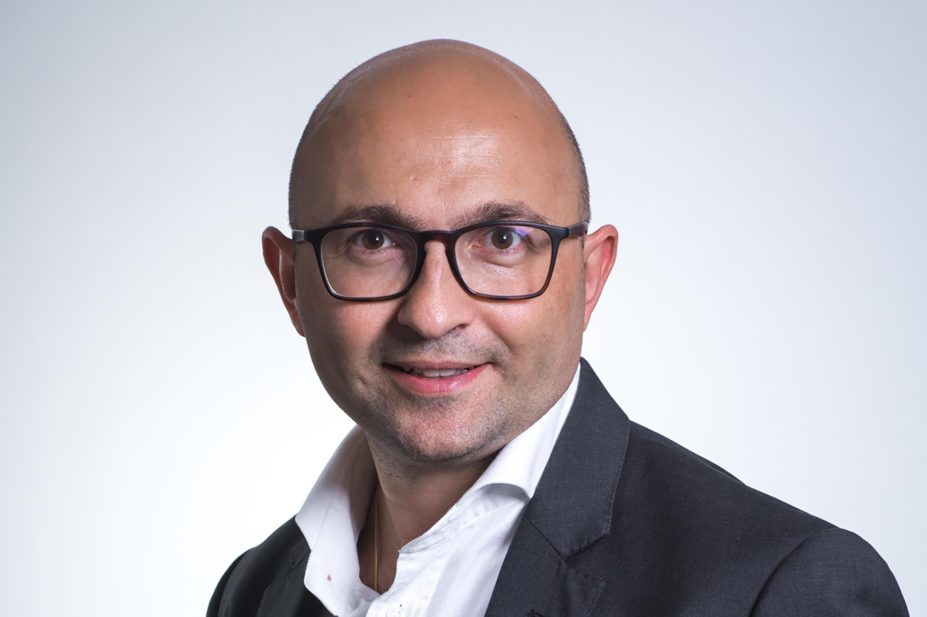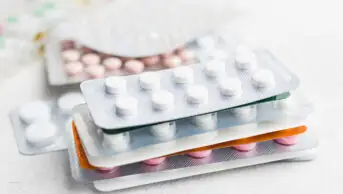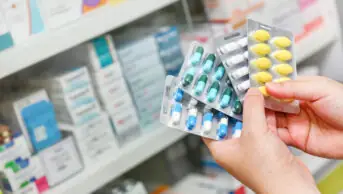
Domenico Curinga
I joined Novartis Oncology in 2019 as a therapy area medical head for haematology in the UK. Rather than having a research-based role, I sit within the medical affairs department, where my main role is to lead and motivate both the field and head office-based haematology medical team associates, which consist of medical science liaisons, medical advisors and junior scientific advisors. Our team is responsible for bridging the gap between the commercial needs of the business and the science behind our medicines. This includes relaying important scientific information to both internal and external stakeholders.
I started my career as a community pharmacist, progressing to area management, divisional human resources and training roles, before joining GSK on a temporary contract within medical affairs in 2016. These career moves are quite unusual for a pharmacist; however, I wanted to understand more about the pharmaceutical industry and the opportunities available. Since then, I have worked in medical affairs within various pharmaceutical companies and discovered a real passion for oncology.
Haematology represents the legacy and the heritage of Novartis and I am very proud to lead such an important division for the organisation. I thoroughly enjoy this role and although I am not in direct contact with patients, working in oncology makes me feel that I am able to make a difference to patients’ lives.
8:30 — start
I like to start the day early so I have time to plan for the day and week ahead. This allows me to focus on what I would like to achieve, from both a short-term perspective and a more visionary approach for the future. It puts me in the necessary headspace to think about my personal development and the team vision to make haematology, as a division, the “place to be”. There is a need to focus on launches to ensure we bring innovative medicines to the patients who need them and deliver excellence in engagement with healthcare professionals.
After checking my emails, I delegate work among the team, offering support if required. I have an urgent request for a medical review of a press release for a new innovative medicine. I give this immediate attention as it will only be newsworthy if delivered within 24–48 hours.
10:00
I attend our weekly haematology medical team meeting. Since COVID-19, we have worked remotely and make use of virtual meetings both internally and when dealing with external bodies and clinicians.
The team has 14 associates from varying backgrounds, including physicians, pharmacists and PhD or Masters graduates, allowing for a variety of skills. I am a great believer that a diverse team enables more productivity and creativity.
We discuss how members are feeling about their week ahead — from both a personal and workload perspective. The idea is to support each other, create a one-team approach and build on our vision. It is also an opportunity to share best practice and any top-line information from the leadership team.
We have worked hard in creating an environment where everyone feels safe to speak up and is committed to each other’s success.
11:00
All medical leaders within the oncology division meet every fortnight to discuss challenges and share best practice and future directions for the medical team. Topics for each meeting will vary from clinical research, regulatory affairs, drug safety, medical information and medical and scientific affairs.
It is also used as a decision-making forum. Today we discuss compassionate use of one of our medicines as an unauthorised treatment option for a patient with a high unmet medical need. These are always very challenging decisions to make, as it is an assessment based on the risk/benefit for a patient who may not have any other treatments available. However, the teams at Novartis are great at working with each other, ensuring a consistent approach to supporting patients across all medical divisions.
12:00
Associates from the wider team are encouraged to arrange and attend lunch and learn sessions, which cover a range of subjects including specific disease areas or mindfulness.
Today, a patient is speaking about their experiences of being diagnosed with a very severe chronic disease and how, after making a full recovery, they decided to train to become a professional athlete. They describe their experiences of being diagnosed and undergoing treatment, but also of their determination to reach their goal.
I find these sessions particularly inspirational as I miss the patient interaction I had in previous roles — these patient sessions, especially, give me purpose. It motivates me to know we can make a difference to patients’ lives.
13:00
Every couple of weeks, we have a cross-functional Haematology Business Franchise Board meeting. This is where all highly strategic decisions are made. A variety of leaders within different departments attend and it is an opportunity for us to agree on future directions. Representatives from health outcomes, sales, marketing, medical, HR and communications are in attendance. It is a very fast-moving meeting and there are always a variety of topics on the agenda.
The one standing agenda item today is to nominate individuals within the haematology division for their outstanding contribution this month. For example, the medical science liaison team was recently awarded for their ability to completely change the way they work during the pandemic and embrace switching every external interaction with healthcare professionals from face-to-face to virtual.
We discuss the potential nominees and agree to announce the awarded associates at the next haematology division meeting.
Celebrating success is vital in ensuring that a highly motivated team is performing at their best.
15:00
I have a 1-2-1 catchup with a junior associate. I always dedicate time to my team and have weekly meetings with each medical associate for at least 30 minutes to have a chat, provide guidance and support, and discuss clear objectives.
As we are approaching the end of the year, I am currently focusing on year-end appraisals. This is an opportunity to reflect on what has been accomplished and celebrate success. Reflection is important and I use this as an opportunity for an after action review, as well as to assess how a project could have been delivered in a simpler way, had improved outcomes or how we could increase productivity.
The most enjoyable part of the role is developing people and watching them grow. This contributes to a great place to work.
16:00
I attend a meeting with the clinical operations team to support them in deciding which clinical trials are feasible to allocate to the UK versus other countries. We look at patient population, current treatment and unmet medical needs at the first stage, and decide whether to take part in a clinical trial from a country perspective. Once a decision is made, we look at which hospital sites would be interested in taking part in the study and allocate patient numbers according to site. Good collaboration between the clinical operation and medical affairs teams is key to advance and accelerate clinical research in the UK.
We discuss the process for COVID-related trials which have been accelerated to support research. We recently collaborated with regulators to bring a Phase III trial from conception to execution in less than six months, which is unheard of, while maintaining our commitment to patient safety throughout. This is a great example of how pharma, regulatory bodies and the NHS can come together to drive excellence for patients who are in desperate need.
16:30
The medical affairs team works closely with the health outcomes team to ensure we are effectively bringing our medicines to patients. This happens through technology appraisals for use of new and existing medicines and treatment within the NHS.
We discuss a couple of health technology appraisals, including one for a rare disease. Recommendations are based on clinical and economic evidence. Medical affairs plays a pivotal role in preparing the clinical evidence for submission to the National Institute of Health and Care Excellence (NICE) or the Scottish Medicines Consortium in Scotland. The clinical evidence can show how well the medicine or treatment works and, together with the economic evidence, helps NICE and the NHS understand if the cost-effectiveness represents good value for money.
This is a long process that requires much effort and collaboration but it is an opportunity to partner with the NHS to improve outcomes for patients.
17:00
While working in such a fast-paced environment is very exciting, I usually have a very packed agenda which can be stressful, so I spend the last part of my day preparing for tomorrow.
I have a quick look at my diary again and start prioritising work, making sure I have enough time for both operational tasks and strategic thinking.
17:30 — finish
Now that the day is over, it is equally important to have time to relax and unwind. After work, I enjoy spending time with my family. I have two boys and we are never bored at home. We enjoy playing football in the garden and, in the summer, we always play a match before dinner.
Interested in a similar role?
- Do not be in a rush to enter the pharmaceutical industry. Gain as much general pharmacy experience as possible within community, hospital and/or general practice. This will help consolidate the pharmacy knowledge gained at university and enhance your understanding of clinical practice;
- Deepen your understanding of the pharmaceutical industry by talking to colleagues who have industry experience or reaching out to industry professionals via LinkedIn;
- Have a good understanding of various therapy areas and know how to interpret clinical studies. You may need to increase your knowledge by reading scientific journals based on the therapy areas you are interested in applying for;
- Invest time in preparing for interviews. This includes researching the company you have applied for and the role. Understanding the culture of the organisation is equally as important;
- Once in pharma, you will most likely require several lateral moves, potentially between different companies before being considered for a therapy area medical head position. A lateral move will give you a more rounded experience, which may be what you need to excel in future.


